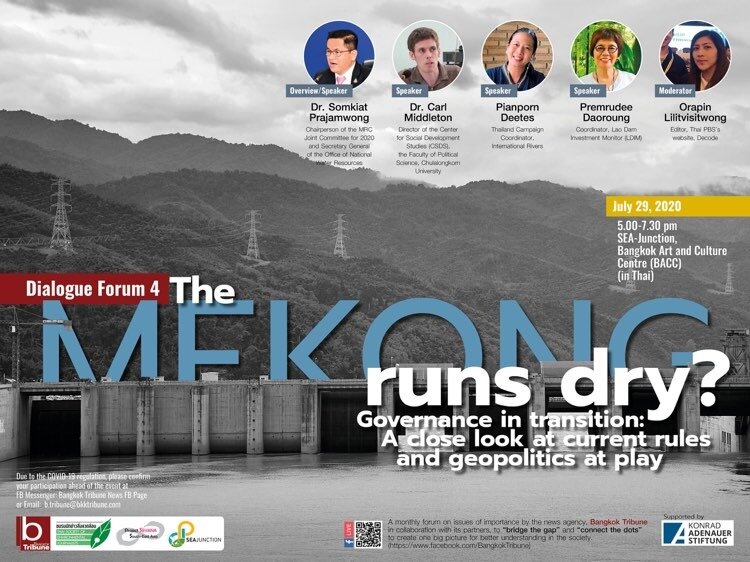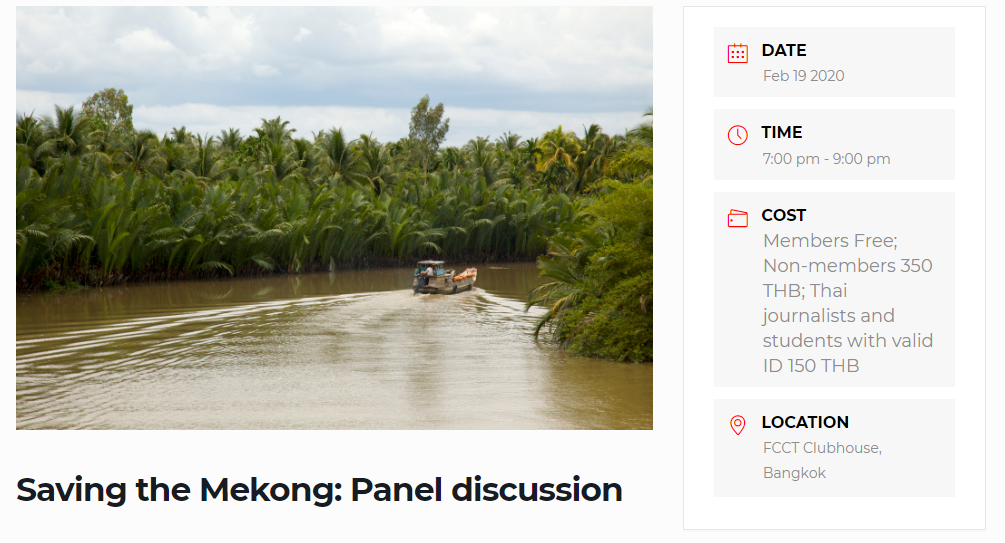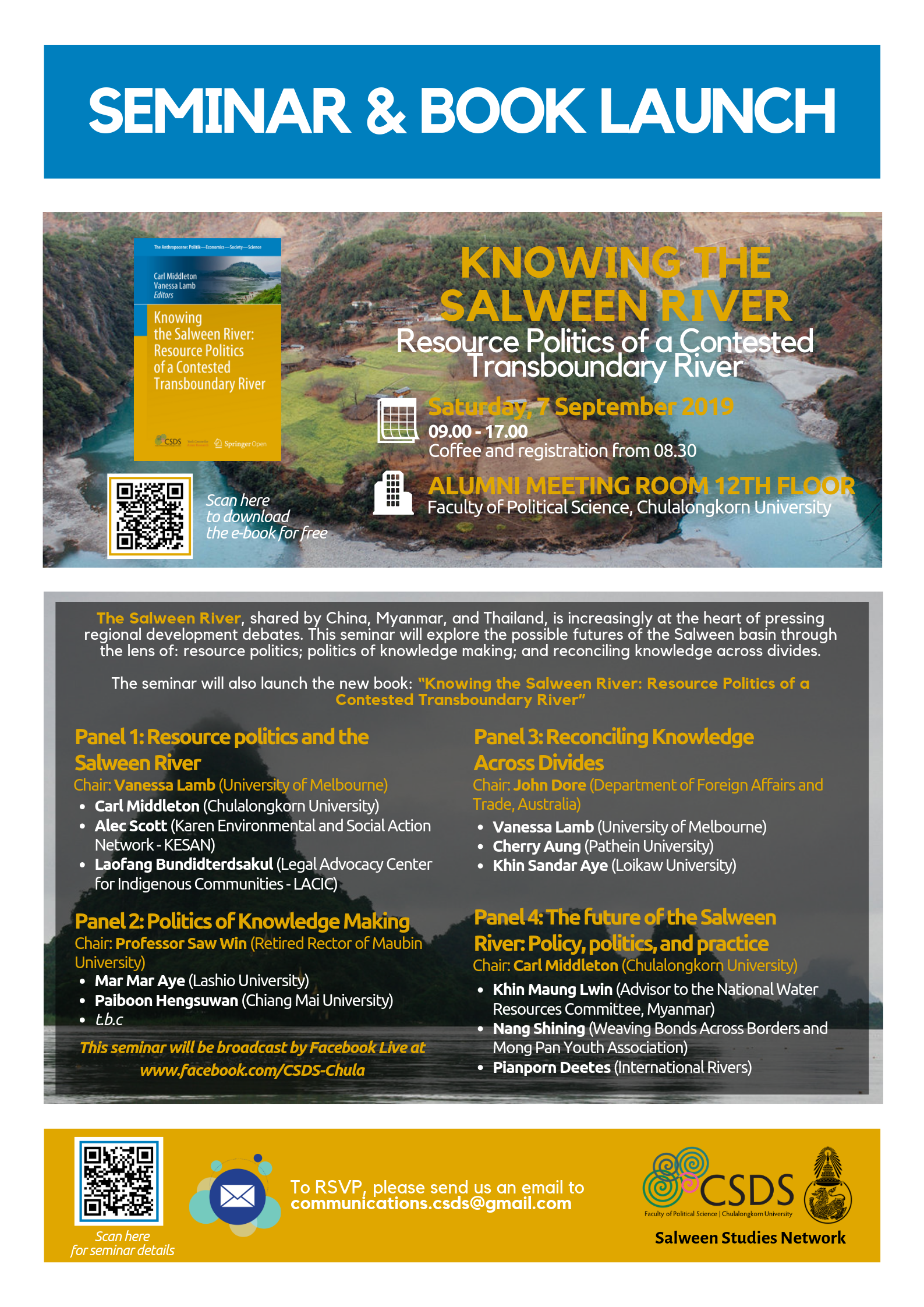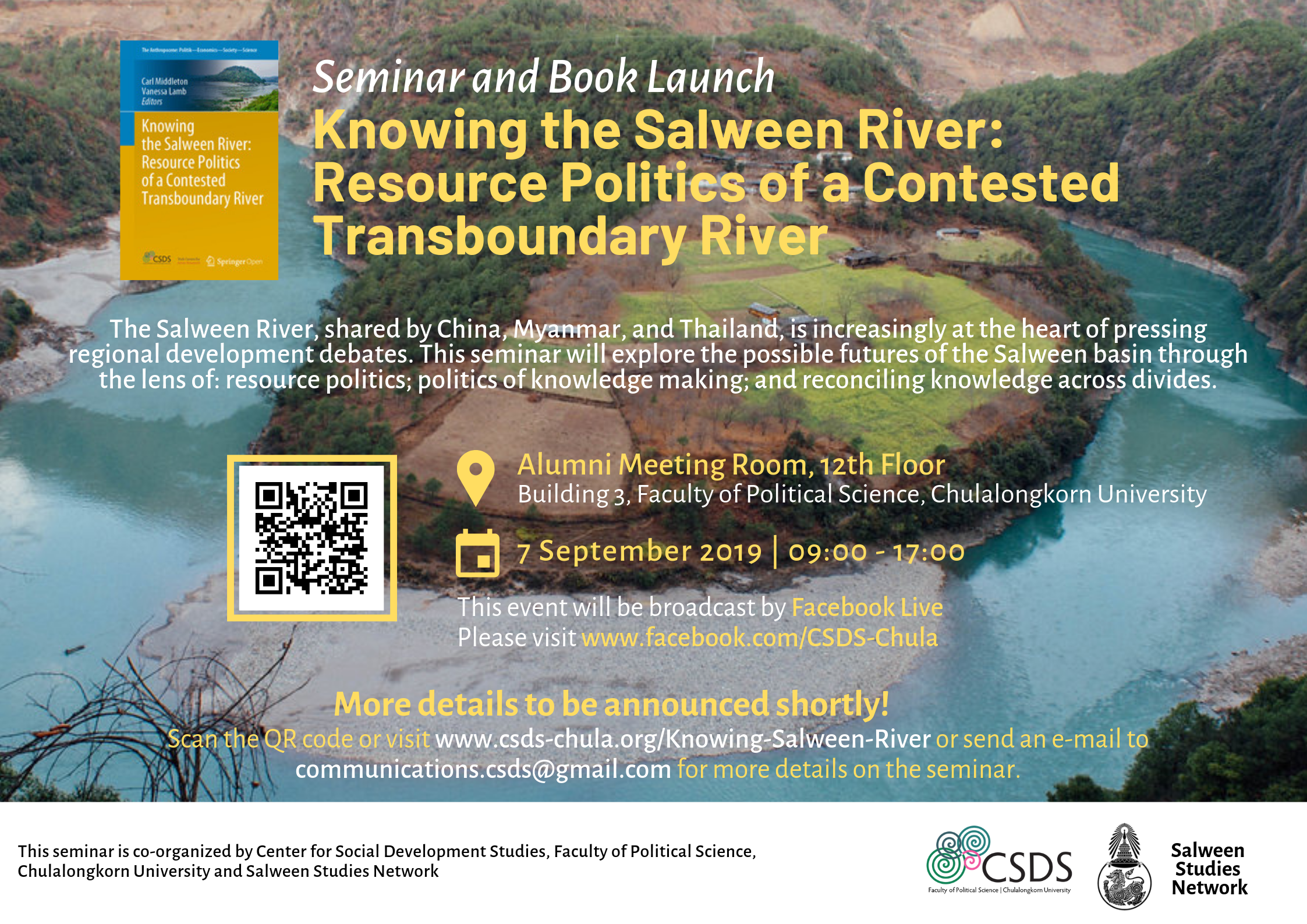09.00 - 17.00, Friday, 25th January at Alumni Meeting Room, 12th Floor, Kasem Utthayanin Building (อาคารเกษม อุทยานิน), Faculty of Political Science, Chulalongkorn University, Bangkok, Thailand
Co-organized by Konrad-Adenauer-Stiftung e.V., Chatham House, and Center for Social Development Studies, Faculty of Political Science, Chulalongkorn University
Renewable energy technologies not only help to mitigate climate change by substituting for carbon-emitting fossil fuels, but also can expand energy security by avoiding exposure to the volatility of fossil fuel markets. Renewables can also help provide cheap and reliable energy to areas where grid-based provision is unreliable or otherwise prohibited by geography or high costs. The increased efficiency and renewable nature of such energy can improve energy availability, energy security and economic resilience.
Last year saw the second highest level of investment in global clean energy, according to Bloomberg New Energy Finance (BNEF), at US$333.5 billion, despite falling technology costs. Globally, the solar sector in China dominated, with a total of $132.6 billion of investments – leading to over 50 GW of additional solar capacity. In regional terms Asia, largely China, continued to dominate the global landscape. According to the Institute for Energy Economics and Financial Analysis (IEEFA), Chinese sustainable energy investment oversees has doubled in the last three years and now stands at $44 billion.
The importance of the accelerated deployment of renewable energy and energy efficiency is also reflected in UN Sustainable Development Goal 7: Affordable and Clean Energy, and it is a central goal for many countries in Asia. It is also increasingly an important focus for, and aspects of, countries’ and institutions investments in Asia.
China has put emphasis on the green ‘Belt and Road’ and 'South-South environmental cooperation', for example. In Myanmar, a Chinese government partnership with a Beijing-based environmental NGO pledged to provide US$2.9 million worth of solar panels and clean cook stoves. Leading Japanese companies are also looking overseas for opportunities in the renewable energy sector, including in India. Aid programs from a range of countries, including the US, Japan and Korea are also seeking to support sustainable energy transition.
Civil society groups and communities are also calling for – and working directly towards – an energy transformation across the region, including promoting decentralized electricity generation, energy efficiency, demand side management, and more participatory power planning processes. Countries across Asia also have a great deal of their own experience to draw on in promoting renewable energy that serves the needs of the poor.
The workshop aims to:
Assess the role of clean energy in Asia’s goal to develop sustainable energy that serves the needs of the poor;
Consider the place of renewables in overseas aid and investments strategies in Asia, including in China’s Belt and Road Initiative;
Address whether learning across different regional contexts on the implementation of cost-effective, reliable clean energy might bring benefits for clean energy development.
Create a network of interested experts who can develop further research proposal(s) and collaboration on these topics.
Key outcomes of the events will be:
Sharing lessons on how clean energy enhances both energy security and climate change mitigation;
Enhanced understanding of the importance of Asian, and in particular Chinese, sustainable energy investment in the global market;
Examining how and where Asian countries can draw on both good and bad experiences of their own and other countries’ energy and development policy with regard to sustainable energy that serves the needs of the poor; and,
Develop plans for the creation of a network with an understanding of the opportunities for common research and activities.
Program and List of Panelists:
08.30 - 09.00 Registration
09.00 - 09.15 Welcome remarks
Dr. Ake Tangsupvattana, Dean, Faculty of Political Science, Chulalongkorn University
Dr. Sam Geall, Chatham House
Dr Peter Hefele, Konrad-Adenauer-Stiftung
09.15 - 10.45 Panel 1: Trends and Emerging Opportunities
Chair: Dr. Carl Middleton, CSDS, Faculty of Political Science, Chulalongkorn University
“Energy Transition Pathways for the 2030 Agenda in Asia and the Pacific” by Hongpeng Liu, Energy Division, United Nations Economic and Social Commission for Asia and the Pacific
“Energy Trading in Thailand” by David Martin, Power Ledger, Australia/Thailand
“A Power Sector Vision for the Greater Mekong Region“ by Shannon Siyao Wang, World Wildlife Fund
“Energy transformation and the role of civil society in Thailand” by Suphakit Nuntavorakarn, Healthy Public Policy Foundation, Thailand
10.45 - 11.15 Tea Break
11.15 - 12.45 Session 2: Aid and investment agendas supporting an energy transition
Chair: Dr. Champa Patel, Asia-Pacific Programme, Chatham House, London
“How EU development cooperation can support the energy transition” by Jerome Pons, Delegation of the European Union to Thailand
“Role of business and private actors in the process of low-carbon transformation in China” by Dr. Wei Shen, Institute of Development Studies, Brighton, United Kingdom
‘'Climate finance and the sustainable energy transition in Asia” by Yossef Zahar, United Nations Framework Convention on Climate Change (UNFCCC)/IGES
12.45 - 13.45 Lunch
13.45 - 15.15 Session 3: Enhancing Energy Sector Investments in Asia: Assessment and Inclusive Decision Making
Chair: Ellen Kelly, Department for International Development (DFID), UK
“Transforming Southeast Asia’s electricity sector through Impact Assessment” by Dr. Decharut Sukkumnoed, Faculty of Economics, Kasetsart University
“Towards Strengthening Environmental and Social Safeguards in Southeast Asia” by Matthew Baird, Asian Research Institute for Environmental Law and Visiting Scholar, Vermont Law School
“Environmental Assessment in Energy Projects in Myanmar: Civil societies experience and recommendations” by Pyi Pyi Thant, Heinrich Böll Stiftung
15.15 - 15.45 Tea Break
15.45 - 17.15 The Way Ahead: Realizing opportunities for sustainable electricity transformation
Chair: Dr. Jakkrit Sangkhamanee, Faculty of Political Science, Chulalongkorn University
“Hydropower vs other renewables in the Greater Mekong region: Ensuring the resilience of Asian Deltas” by Marc Goichot, World Wildlife Foundation
“Green Jobs and Energy Transition in Southeast Asia” by Chariya Senpong, Climate and Energy Campaigner for Greenpeace Southeast Asia
“Lessons learned from China’s solar boom, and implications for Asia” by Dr. Sam Geall, Chatham House
“Off-grid solutions in rural Myanmar: Innovation in technology and approach” by Nathalie Risteau, Yoma Mandalay
17.15 - 17.30 Wrap-up and Closing Remarks
Dr. Champa Patel, Asia-Pacific Programme, Chatham House, London
Dr. Carl Middleton, CSDS, Faculty of Political Science, Chulalongkorn University
To register for this forum, please e-mail us your name, organisation, and position to Anisa Widyasari (CSDS) at communications.csds@gmail.com. The seat is limited and registration will be accepted on first come first served basis.


















![Screenshot_2019-06-10 Mega dams, sand mining and renewable energy Navigating a new course for the mighty rivers of Southeas[...].png](https://images.squarespace-cdn.com/content/v1/575fb39762cd94c2d69dc556/1560135171257-JGOO7E63GHSPLDPXG2Q4/Screenshot_2019-06-10+Mega+dams%2C+sand+mining+and+renewable+energy+Navigating+a+new+course+for+the+mighty+rivers+of+Southeas%5B...%5D.png)



